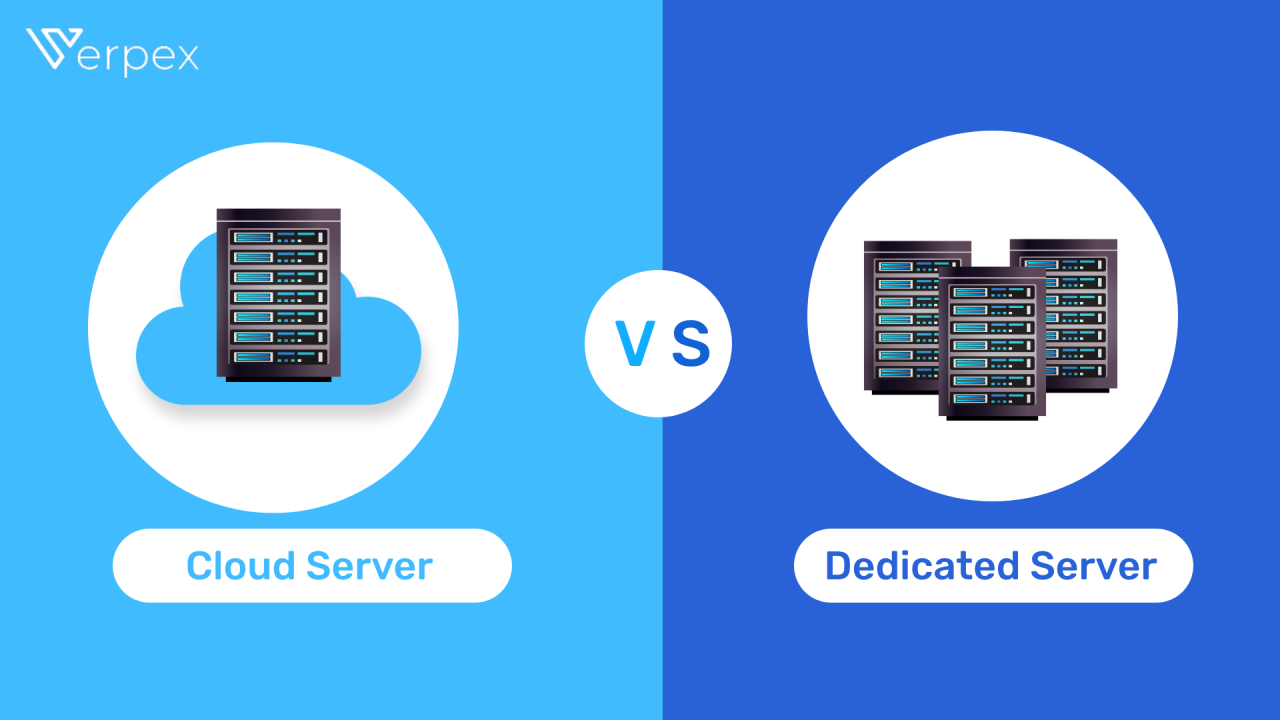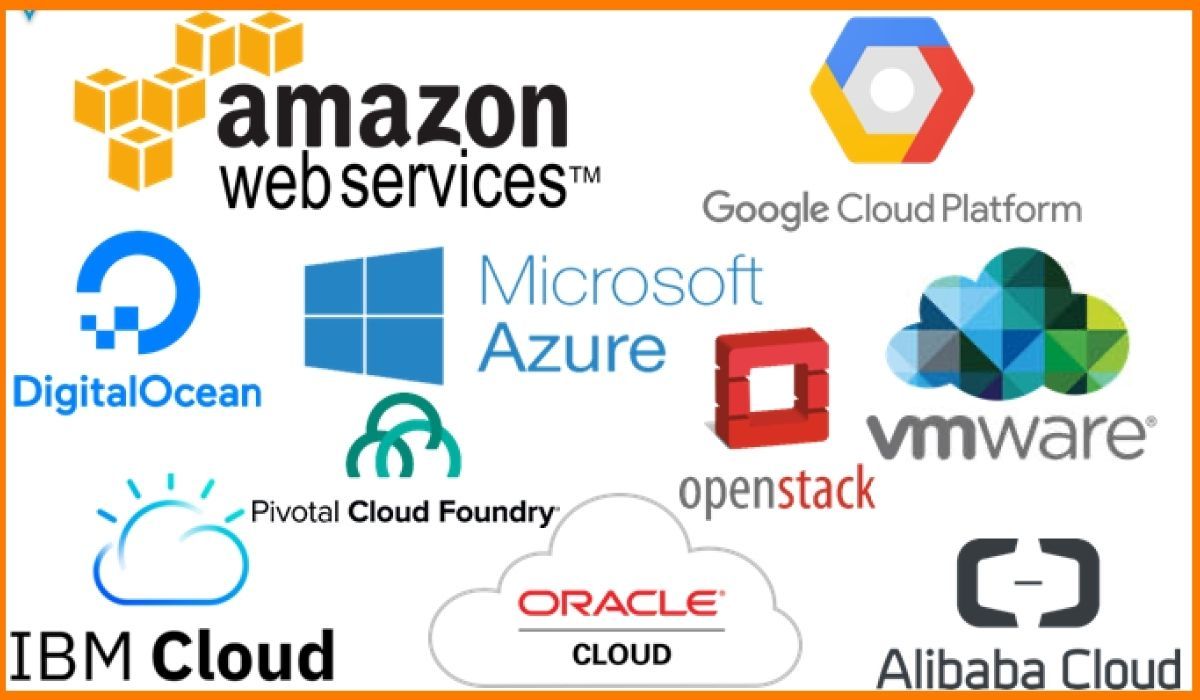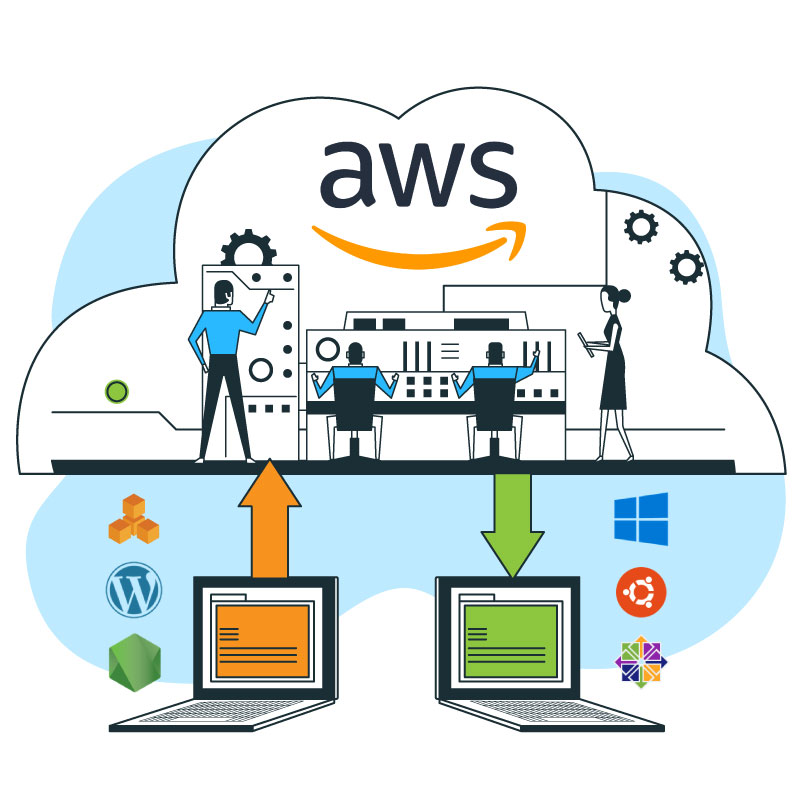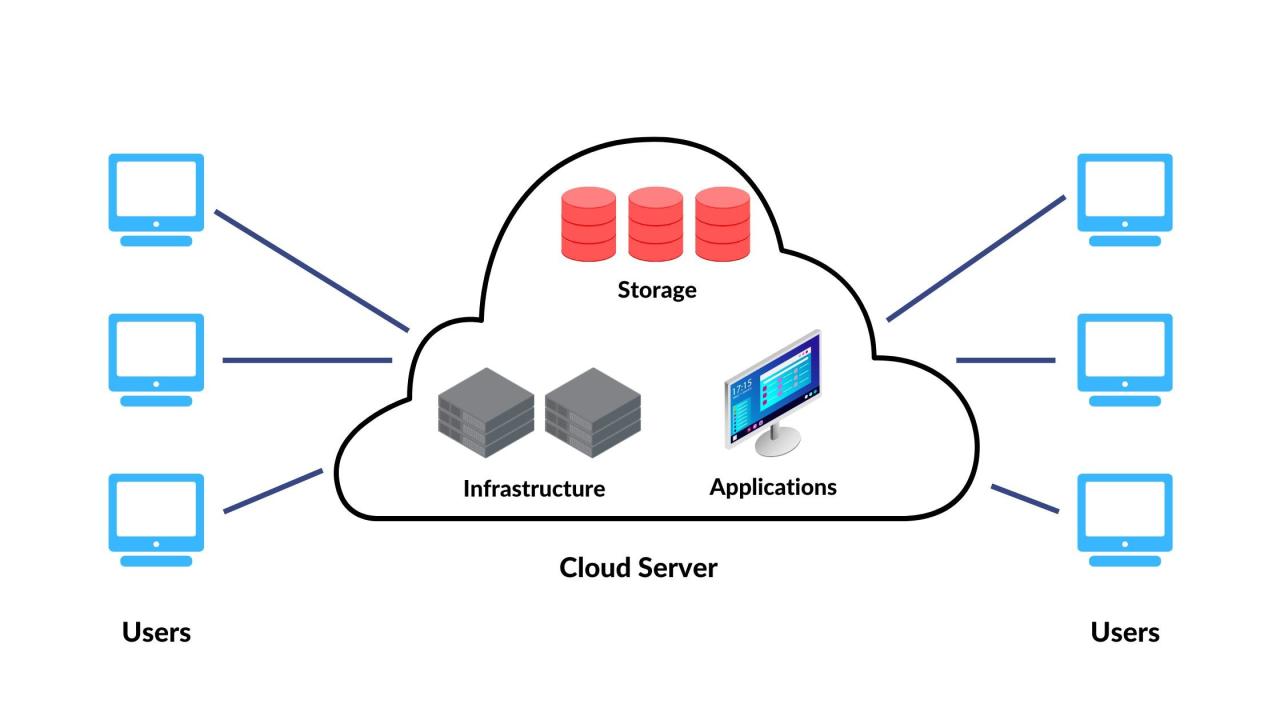Cloud dedicated servers offer a unique blend of power, security, and scalability, providing businesses with a robust and reliable platform for their critical applications. Unlike shared hosting or virtual private servers (VPS), a cloud dedicated server provides exclusive access to the server’s resources, ensuring optimal performance and control.
Imagine having a dedicated server with the flexibility and agility of the cloud. That’s the promise of cloud dedicated servers. These servers are designed to deliver high-performance computing power and dedicated resources, ensuring your applications run smoothly and efficiently. Whether you need to handle heavy workloads, manage sensitive data, or build custom applications, cloud dedicated servers offer a reliable and scalable solution.
What is a Cloud Dedicated Server?

A cloud dedicated server, also known as a dedicated cloud server, is a physical server that is dedicated to a single user or organization. This means that the entire server’s resources, including its CPU, RAM, storage, and network bandwidth, are exclusively available to the user. Unlike shared hosting, where multiple websites share the same server, a cloud dedicated server offers complete isolation and control over the server environment.
Core Features of a Cloud Dedicated Server
Cloud dedicated servers offer a range of features that cater to the specific needs of businesses and individuals requiring high performance, security, and control. Here are some of the key features:
- Dedicated Resources: The entire server’s resources, including CPU, RAM, storage, and network bandwidth, are dedicated to a single user or organization. This ensures optimal performance and eliminates the possibility of resource contention with other users.
- Complete Control: Users have full administrative access to the server, allowing them to install and configure software, manage security settings, and customize the operating system according to their requirements.
- Scalability: Cloud dedicated servers can be easily scaled up or down to meet changing demands. This flexibility allows users to adjust their server resources based on their current needs, ensuring optimal performance and cost efficiency.
- High Availability: Cloud dedicated servers can be configured with redundant hardware and software components to ensure high availability and minimize downtime. This is crucial for mission-critical applications and websites.
- Security: Cloud dedicated servers offer enhanced security features, including firewalls, intrusion detection systems, and dedicated security teams. These features help protect sensitive data and applications from unauthorized access and cyber threats.
Difference Between a Cloud Dedicated Server and a VPS
A virtual private server (VPS) is a virtualized server environment that runs on a physical server shared with other users. While VPS offers some level of isolation and dedicated resources, it shares the underlying hardware with other users. In contrast, a cloud dedicated server provides complete isolation and dedicated resources, ensuring higher performance and security.
Here’s a table that summarizes the key differences between a cloud dedicated server and a VPS:
| Feature | Cloud Dedicated Server | VPS |
|---|---|---|
| Hardware | Dedicated physical server | Virtualized server environment on shared hardware |
| Resources | Exclusive access to all server resources | Shared resources with other users |
| Control | Full administrative access | Limited administrative access |
| Performance | Higher performance due to dedicated resources | Lower performance compared to a dedicated server |
| Security | Enhanced security features | Lower security compared to a dedicated server |
| Cost | Higher cost than a VPS | Lower cost than a dedicated server |
Use Cases for Cloud Dedicated Servers
Cloud dedicated servers are ideal for a wide range of applications and businesses that require high performance, security, and control. Here are some examples of use cases where a cloud dedicated server is advantageous:
- E-commerce Websites: High-traffic e-commerce websites require reliable performance and scalability to handle peak traffic periods. A cloud dedicated server provides the necessary resources and control to ensure a smooth and secure online shopping experience.
- Gaming Servers: Online gaming servers demand high performance, low latency, and dedicated resources to deliver a seamless gaming experience. A cloud dedicated server offers the necessary infrastructure to host popular online games and ensure a positive player experience.
- Financial Applications: Financial institutions require secure and reliable server environments to process sensitive transactions and protect customer data. A cloud dedicated server provides the necessary security and control to meet these requirements.
- Data-Intensive Applications: Applications that process large volumes of data, such as data analytics platforms and scientific simulations, require significant computing power and storage capacity. A cloud dedicated server provides the necessary resources to handle these demanding workloads.
- Mission-Critical Applications: Businesses that rely on critical applications for their operations need a server environment that offers high availability and minimal downtime. A cloud dedicated server with redundant hardware and software components can ensure continuous operation even in the event of hardware failures.
Benefits of Cloud Dedicated Servers
Cloud dedicated servers offer several advantages over traditional physical dedicated servers. They combine the power and isolation of a dedicated server with the flexibility and scalability of cloud computing. This results in a powerful and cost-effective solution for businesses of all sizes.
Performance
Cloud dedicated servers provide high performance and low latency. This is because they are built on top of a robust infrastructure with high-speed network connections and powerful hardware. These servers can handle demanding workloads, such as running complex applications, hosting large databases, and processing high volumes of data.
Security
Cloud dedicated servers offer enhanced security features. Cloud providers invest heavily in security measures to protect their infrastructure from threats. These measures include firewalls, intrusion detection systems, and data encryption. Cloud dedicated servers also benefit from regular security updates and patches, ensuring that they are always protected against the latest threats.
Control
Cloud dedicated servers provide users with a high level of control over their server environment. Users can customize their server configuration, install software, and manage their own security settings. This level of control is essential for businesses that require a highly customized server environment.
Scalability and Flexibility
Cloud dedicated servers are highly scalable and flexible. Users can easily adjust their server resources based on their changing needs. This allows businesses to scale their infrastructure up or down as needed, without having to invest in new hardware.
Cost-Effectiveness
Cloud dedicated servers are often more cost-effective than physical dedicated servers. This is because cloud providers can spread the cost of their infrastructure over a large number of customers. Additionally, users only pay for the resources they use, which can help reduce costs.
Ease of Management
Cloud dedicated servers are easier to manage than physical dedicated servers. Cloud providers offer a range of tools and services that simplify server management tasks. These tools include server monitoring, backup and recovery, and automated provisioning.
High Availability
Cloud dedicated servers offer high availability. This means that they are designed to remain operational even in the event of a hardware failure. Cloud providers have multiple data centers and redundant systems in place to ensure that servers are always available.
Disaster Recovery
Cloud dedicated servers provide disaster recovery capabilities. Cloud providers offer data backup and replication services that can be used to restore data in the event of a disaster. This helps businesses to minimize downtime and data loss.
Environmental Sustainability
Cloud dedicated servers can be more environmentally sustainable than physical dedicated servers. Cloud providers often use energy-efficient data centers and renewable energy sources to power their infrastructure. This can help businesses reduce their carbon footprint.
Comparison to Physical Dedicated Servers, Cloud dedicated server
| Feature | Cloud Dedicated Server | Physical Dedicated Server |
|---|---|---|
| Scalability | Highly scalable | Limited scalability |
| Flexibility | Highly flexible | Limited flexibility |
| Cost-Effectiveness | Often more cost-effective | Can be expensive |
| Management | Easier to manage | More complex to manage |
| Availability | High availability | Lower availability |
| Disaster Recovery | Built-in disaster recovery capabilities | Requires separate disaster recovery planning |
| Security | Enhanced security features | Requires ongoing security management |
Cloud Dedicated Server Use Cases
Cloud dedicated servers offer a versatile solution for a wide range of industries and applications, catering to specific needs and requirements. These servers provide dedicated resources, ensuring high performance, security, and control, making them ideal for businesses demanding robust and scalable solutions.
Industry-Specific Applications
Cloud dedicated servers find their place in various industries, each with unique requirements and challenges. Here are some examples:
- E-commerce: Dedicated servers are essential for online retailers handling high traffic volumes, sensitive customer data, and complex transactions. They guarantee fast loading times, secure payment processing, and seamless user experiences, contributing to increased sales and customer satisfaction.
- Financial Services: The financial sector relies heavily on secure and reliable infrastructure. Dedicated servers provide a robust platform for managing sensitive financial data, executing complex transactions, and ensuring compliance with regulatory requirements. They offer high availability, data encryption, and advanced security measures, crucial for maintaining trust and protecting customer assets.
- Healthcare: The healthcare industry requires secure and reliable infrastructure for managing patient data, electronic health records, and medical imaging. Dedicated servers offer the necessary security and performance to handle sensitive medical information, ensuring compliance with HIPAA regulations and providing a secure platform for critical healthcare applications.
- Gaming: The gaming industry demands high performance and low latency for smooth gameplay. Dedicated servers offer the dedicated resources and high bandwidth needed for online gaming, ensuring a seamless and immersive experience for players. They can also be customized to accommodate specific game requirements, such as server configurations and dedicated resources for specific game types.
- Media & Entertainment: Media and entertainment companies rely on dedicated servers for content delivery, video streaming, and large-scale data processing. They provide the necessary performance and scalability to handle high-bandwidth demands, ensuring smooth streaming, high-quality video playback, and reliable content delivery to a global audience.
Specific Use Cases and Benefits
Here’s a table highlighting specific use cases and the benefits of utilizing a cloud dedicated server in those scenarios:
| Use Case | Benefits |
|---|---|
| High-Performance Computing (HPC) | Dedicated resources for complex computations, simulations, and data analysis. Increased performance and efficiency for scientific research, engineering design, and financial modeling. |
| Database Management | Secure and reliable platform for managing large and complex databases. High availability, scalability, and performance for mission-critical applications requiring consistent data access. |
| Web Hosting | Dedicated resources for high-traffic websites, ensuring fast loading times, improved user experience, and reduced downtime. Enhanced security and control over server environment. |
| Software Development | Isolated and secure environment for testing, development, and deployment of applications. Dedicated resources for building and deploying complex software solutions. |
| Virtualization | Dedicated server for running multiple virtual machines, providing flexibility and scalability for deploying various applications and services. |
Case Study: E-commerce Platform Expansion
Imagine an online retailer experiencing rapid growth and facing challenges with its existing infrastructure. The website experiences slow loading times, frequent outages, and difficulty handling peak traffic. This impacts customer experience and sales, hindering business growth.
To address these challenges, the retailer decides to implement a cloud dedicated server. The dedicated server provides the necessary resources and performance to handle the increased traffic volume, ensuring faster loading times and a seamless user experience. The retailer can also leverage the server’s scalability to accommodate future growth and peak demands, eliminating the risk of outages and downtime.
The cloud dedicated server also offers enhanced security, protecting customer data and transactions from potential threats. This builds trust and confidence with customers, leading to increased conversions and repeat business.
The retailer’s investment in a cloud dedicated server proves successful, enabling them to overcome infrastructure limitations and achieve sustainable growth. They experience improved performance, enhanced security, and increased customer satisfaction, ultimately driving business success.
Future of Cloud Dedicated Servers
The cloud dedicated server market is constantly evolving, driven by advancements in technology and changing user demands. While serverless computing and edge computing present alternative solutions, cloud dedicated servers continue to hold a significant place in the cloud landscape. This section delves into the emerging trends and technologies impacting the cloud dedicated server market, exploring the potential impact of serverless and edge computing, and examining the future role of cloud dedicated servers in hybrid and multi-cloud environments.
Impact of Emerging Trends and Technologies
The cloud dedicated server market is being shaped by several emerging trends and technologies, leading to increased performance, flexibility, and cost-effectiveness.
- Artificial Intelligence (AI) and Machine Learning (ML): The increasing adoption of AI and ML applications is driving demand for high-performance computing resources, making cloud dedicated servers an attractive option. These servers provide the necessary processing power and dedicated resources to handle complex AI and ML workloads efficiently.
- Internet of Things (IoT): The rapid growth of the IoT is generating vast amounts of data that need to be processed and analyzed. Cloud dedicated servers offer a reliable and scalable solution for managing and analyzing IoT data, providing the necessary infrastructure for real-time data processing and analytics.
- 5G and Edge Computing: The deployment of 5G networks and the rise of edge computing are creating new opportunities for cloud dedicated servers. Edge servers can be deployed closer to users and devices, reducing latency and improving performance for applications requiring low latency and high bandwidth.
- Cloud Security Enhancements: As security concerns grow, cloud providers are investing heavily in enhancing security features for cloud dedicated servers. These enhancements include advanced security monitoring, intrusion detection systems, and data encryption capabilities, providing a secure environment for sensitive data and applications.
Impact of Serverless Computing
Serverless computing offers a compelling alternative to traditional cloud dedicated servers by abstracting away the underlying infrastructure management. It allows developers to focus on writing code without worrying about server provisioning, scaling, or maintenance. While serverless computing has gained traction for certain types of applications, cloud dedicated servers remain relevant for workloads demanding high performance, dedicated resources, and control over the underlying infrastructure.
- High-Performance Computing: Cloud dedicated servers are still the preferred choice for applications requiring high-performance computing resources, such as scientific simulations, data analysis, and gaming. Serverless computing typically lacks the dedicated resources and control necessary for these demanding workloads.
- Specialized Software: Applications requiring specific software configurations or operating systems may not be readily available in serverless environments. Cloud dedicated servers provide the flexibility to install and configure the necessary software and operating systems according to specific requirements.
- Security and Compliance: Cloud dedicated servers offer enhanced security and compliance features, allowing organizations to maintain control over their data and infrastructure. Serverless computing can present challenges in meeting specific security and compliance requirements due to its shared infrastructure model.
Impact of Edge Computing
Edge computing brings computation and data storage closer to users and devices, reducing latency and improving performance for applications requiring real-time processing. While edge computing is emerging as a significant trend, cloud dedicated servers continue to play a vital role in edge deployments.
- Centralized Management and Control: Cloud dedicated servers can be deployed in edge locations to provide centralized management and control over edge computing resources. This allows organizations to manage and monitor their edge infrastructure effectively.
- Data Aggregation and Processing: Cloud dedicated servers at the edge can aggregate data from multiple sources and perform initial processing before sending it to the cloud for further analysis. This approach reduces the amount of data transmitted to the cloud, optimizing network bandwidth and reducing costs.
- Hybrid Cloud Integration: Cloud dedicated servers can seamlessly integrate with cloud-based services, creating a hybrid cloud environment. This allows organizations to leverage the benefits of both edge computing and cloud computing, providing a flexible and scalable solution for their needs.
Cloud Dedicated Servers in Hybrid and Multi-Cloud Environments
Hybrid and multi-cloud environments are becoming increasingly popular, allowing organizations to leverage the best of different cloud providers and on-premises infrastructure. Cloud dedicated servers play a crucial role in these environments, providing a flexible and scalable solution for connecting different cloud platforms and managing complex workloads.
- Connecting Different Cloud Platforms: Cloud dedicated servers can act as a bridge between different cloud providers, enabling seamless data exchange and application integration across multiple platforms. This flexibility allows organizations to optimize their cloud strategy based on specific needs and requirements.
- Managing Complex Workloads: Cloud dedicated servers can handle complex workloads requiring specific hardware configurations, software installations, and security controls. These servers provide the necessary resources and control to manage these demanding workloads effectively.
- Disaster Recovery and Business Continuity: Cloud dedicated servers can be deployed as part of a disaster recovery plan, providing a failover mechanism for critical applications and data. This ensures business continuity in the event of a disaster or outage.
Ultimate Conclusion
Cloud dedicated servers offer a compelling solution for businesses seeking a balance between performance, security, and flexibility. With their dedicated resources, robust security features, and scalable architecture, these servers empower businesses to optimize their applications, manage sensitive data, and achieve their strategic goals. As the cloud landscape continues to evolve, cloud dedicated servers are poised to play an increasingly vital role in powering the next generation of applications and services.
Cloud dedicated servers offer a high level of control and performance, making them ideal for demanding workloads. However, managing these servers remotely can be a challenge. Thankfully, there are a number of open source remote monitoring and management software options available, allowing you to keep a close eye on your cloud dedicated server’s performance and security from anywhere.
This ensures you can proactively address any issues and maximize the efficiency of your server resources.




